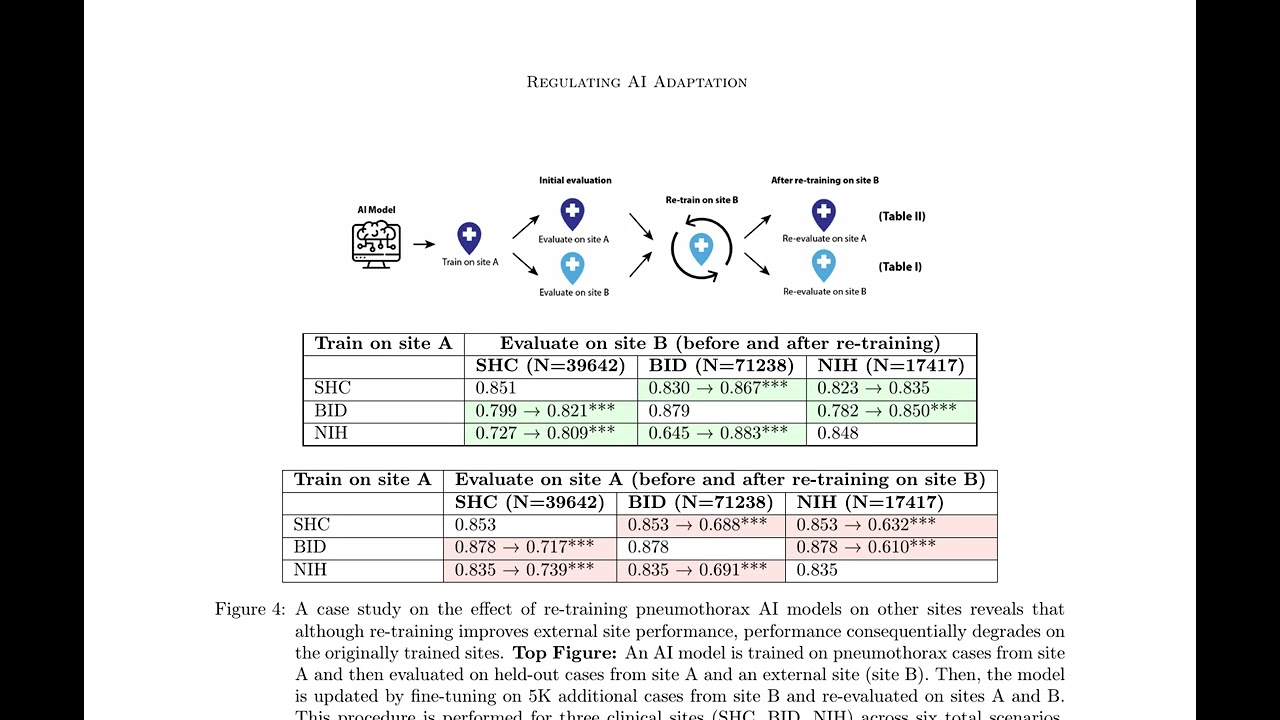Regulating AI Adaptation: An Analysis of AI Medical Device Updates – ArXiv:2407.16900
Original paper: https://arxiv.org/abs/2407.16900
Title: Regulating AI Adaptation: An Analysis of AI Medical Device Updates
Authors: Kevin Wu, Eric Wu, Kit Rodolfa, Daniel E. Ho, James Zou
Abstract:
While the pace of development of AI has rapidly progressed in recent years, the implementation of safe and effective regulatory frameworks has lagged behind. In particular, the adaptive nature of AI models presents unique challenges to regulators as updating a model can improve its performance but also introduce safety risks. In the US, the Food and Drug Administration (FDA) has been a forerunner in regulating and approving hundreds of AI medical devices. To better understand how AI is updated and its regulatory considerations, we systematically analyze the frequency and nature of updates in FDA-approved AI medical devices. We find that less than 2% of all devices report having been updated by being re-trained on new data. Meanwhile, nearly a quarter of devices report updates in the form of new functionality and marketing claims. As an illustrative case study, we analyze pneumothorax detection models and find that while model performance can degrade by as much as 0.18 AUC when evaluated on new sites, re-training on site-specific data can mitigate this performance drop, recovering up to 0.23 AUC. However, we also observed significant degradation on the original site after re-training using data from new sites, providing insight from one example that challenges the current one-model-fits-all approach to regulatory approvals. Our analysis provides an in-depth look at the current state of FDA-approved AI device updates and insights for future regulatory policies toward model updating and adaptive AI.
source

